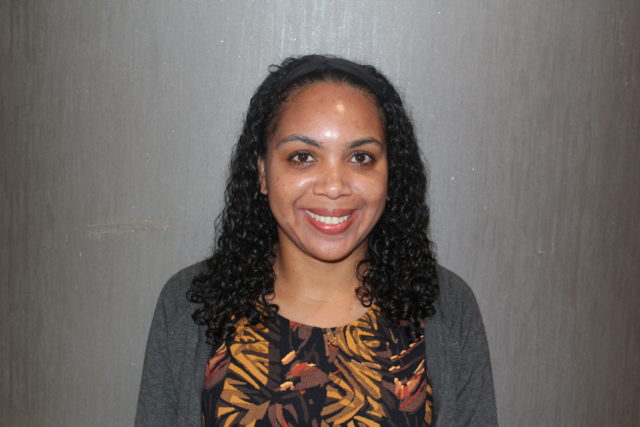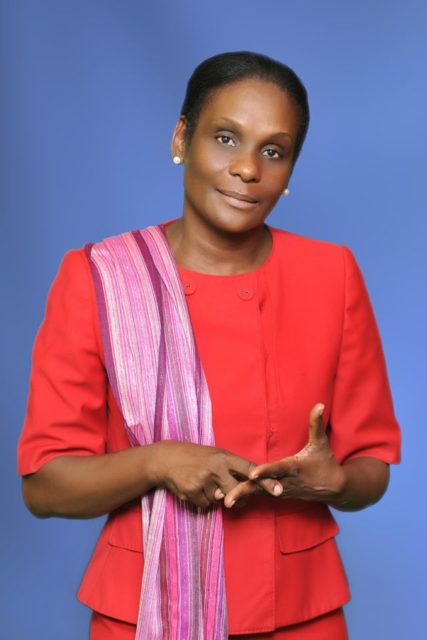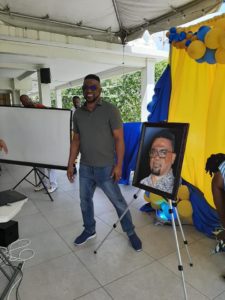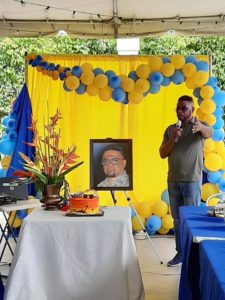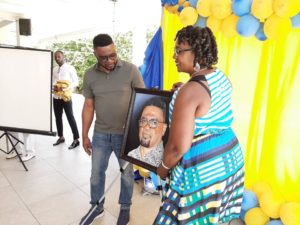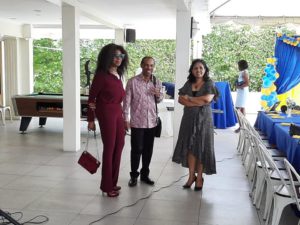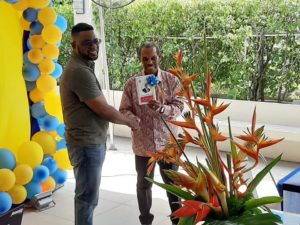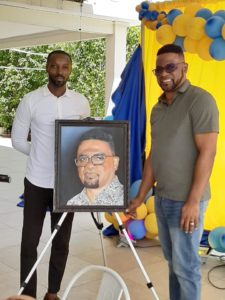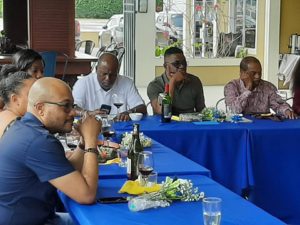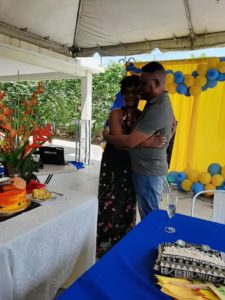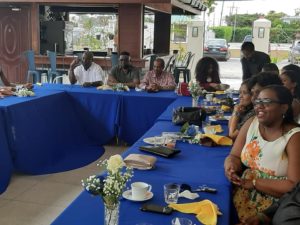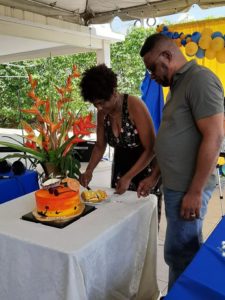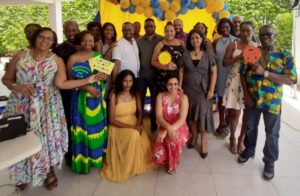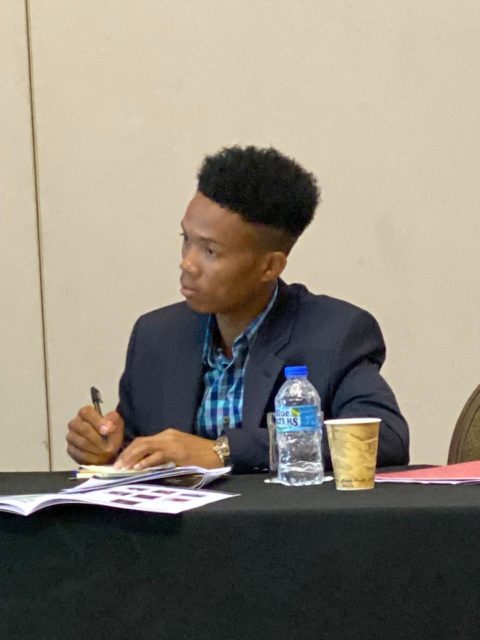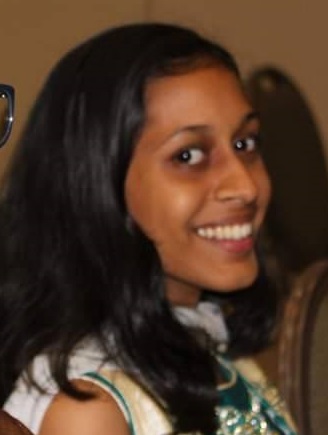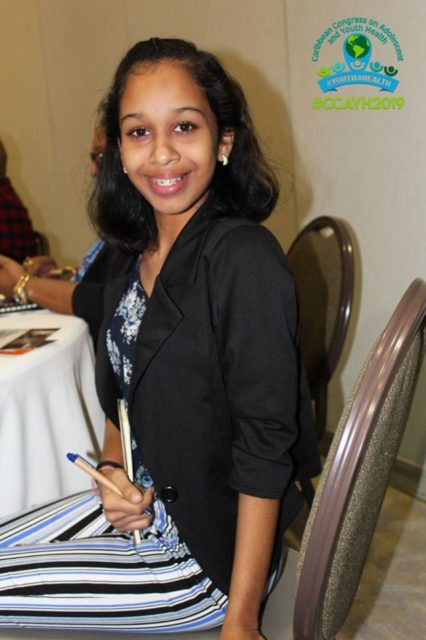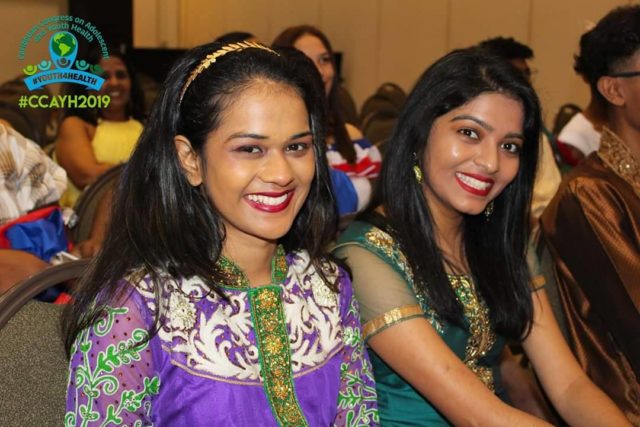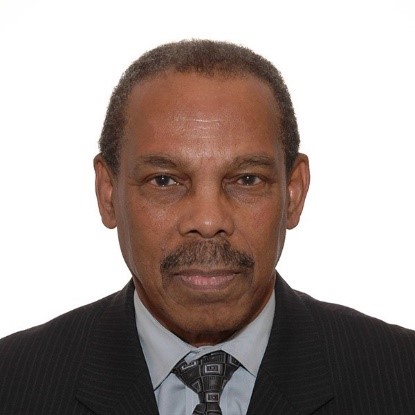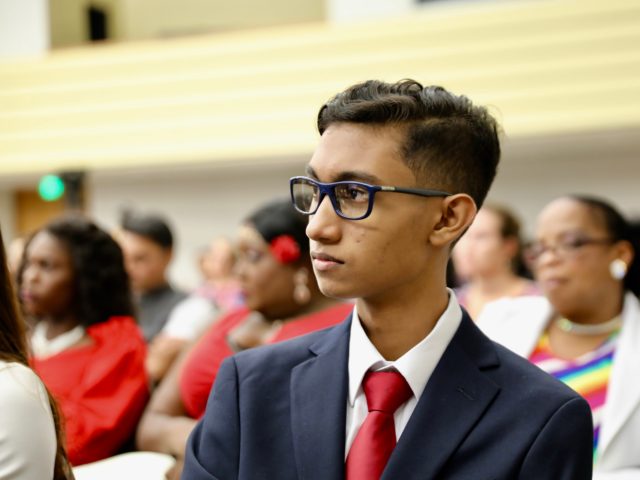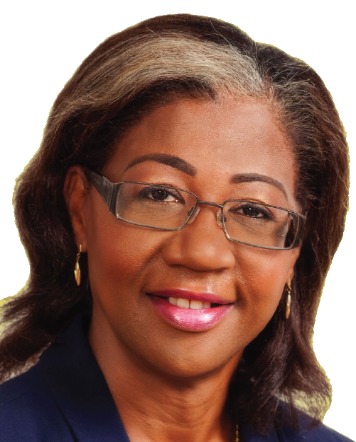“Communities are supported to exercise their powers to choose, know and demand that governments accelerate their efforts to achieve HIV, health and development goals” –Winnie Byanyima, Executive Director UNAIDS.
World AIDS Day provides the ideal occasion to join scientists, activists, practitioners and People Living with and affected by AIDS around the world in celebrating the successes that have been achieved. In the Caribbean 55 % of People Living with HIV (PLHIV) are on treatment compared with less than 5% in 2001, deaths from AIDS are one quarter of what it was in 2001 because of access to treatment, seven Caribbean countries out of 11 worldwide have achieved the elimination of mother to child transmission of HIV, and congenital Syphilis and four others are in close range of this achievement. There is even the aspiration that AIDS, based on the 90-90-90 UNAIDS Targets can be ended by 2030, if by next year, 90% of persons with HIV get tested, 90% that are tested positive are on treatment and 90% of those on treatment have viral suppression at a level that does not transmit the disease. Yet there are indications that at best only three Caribbean countries are on track to achieve these targets and the need for caution against complacency that will contribute to reversing these gains.
The Convergence of Community-Led Organizations and Community-Led Responses
This year it is appropriate that World AIDS Day focuses on communities. They make a difference. Whether as Community-led organisations or as Community-led responses, they represent the voices of the marginalised. They champion the causes for inclusiveness and equality that are fundamentals of the 2030 Sustainable Development Goals.
Community-led organisations comprise identifiable groups or networks that are determined by and respond to the needs and aspirations of their constituents. Community-led responses provide strategies that seek to improve the health and human rights of constituencies. In the context of World AIDS Day, “Community-led”, in principle, is an umbrella term that includes PLHIV, key populations, women, youth, and all self-organised groups. In practice, it focuses on advocacy, campaigning and holding decision-makers to account; promoting service delivery, capacity building, and funding of community-led organisations, groups, and networks. These activities may take place at the global, regional, national, subnational, and grassroots levels.
For the Caribbean, making a difference at the community level has always been driven by the regional response from the inception of the Pan Caribbean Partnership against HIV and AIDS (PANCAP) in 2001.
The four (4) iterations of the Caribbean Regional Strategic Framework (CRSF): 2002-2007, 2008-2012, 2014-2018 and 2019-2025 have provided the blueprint for the Partnership that comprises governments, civil society, private sector representatives, development partners and a specific set of stakeholder groups. Chief among which are parliamentarians, faith leaders, key populations and youth. The CRSF has consistently acted as guidelines for activities on the ground, which include national and community engagements and through broad-based consultations among its various stakeholders.
PANCAP was the first Regional entity to ever receive a grant from the Global Fund for AIDS, Tuberculosis and Malaria (GFATM) in 2004 while sub-regional partners such as the Organization of Eastern Caribbean States HIV Programme and the Caribbean Regional Network of People Living with HIV and AIDS (CRN+) were the first of their kind to also receive support for strengthening the reach of their programmes in the areas of prevention and treatment in 2004 and 2006 respectively. As the umbrella organization PANCAP’s modus operandum involves close engagements with the highest level regional decision making authorities: the Caribbean Heads of Government and the Council of Human and Social Development on which sits Ministers of Health, Education, Culture, Youth and Gender Affairs and which formulates policies that ensure implementation of CRSF’s priorities at country level. With the reduction in donor funding for HIV to the Caribbean based on the classification of high and upper-income countries, PANCAP’s advocacy has contributed in no small measure to the agreement at the 18th Meeting of the CARICOM Council of Ministers of Finance and Planning (July 2018) to make provision for funding the country integrated health priorities that contribute to SDG #3 including ending AIDS by 2030.
This is the context in which the vital role of the Caribbean Vulnerable Communities Coalition (CVC) in community engagement can best be appreciated
The Caribbean Vulnerable Communities Coalition (CVC) and Community Engagement
The Caribbean Vulnerable Communities Coalition initially pioneered by the late Dr Robert Carr in 2005 was a spinoff from and supported by PANCAP. It has evolved into the Caribbean Vulnerable Community Coalition (CVC) with headquarters in Jamaica and joint operation, El Centro Orientación e investigación Integral (COIN) in the Dominican Republic, comprises approximately 40 grassroots civil society groups that work with marginalised populations. These populations are especially vulnerable to HIV due to socioeconomic exclusion, punitive laws and policies, high levels of violence against women and girls and stigma and discrimination across the Caribbean. CVC has developed a Shared Incident Database (SID) cataloguing human rights violations and providing pro bono legal assistance, community action and outreach in more than 2,668 cases. In addition, it’s training in HIV, Human Rights and Key Population Issues, in collaboration with UNAIDS and the Caribbean Broadcasting Union, has advanced the cause of human rights in more than 2000 cases. Among its most prominent roles in community education and media work are to advance human rights for key populations that in collaboration with The University of the West Indies Rights Advocacy Project (URAP) support activism, especially related to high profile cases in the courts of Belize, Guyana, Jamaica and the Republic of Trinidad and Tobago.
The CARICOM-PANCAP Global Fund grant 2011-2015, which included CVC and COIN and other sub and sub-sub recipients,Global Fund proposal placed emphasis on delivery of health care, especially in the implementation of primary health, including strong community participation. Community involvement in the Caribbean over the years has transitioned from family and community-led financial, social, and psychological support to the establishment of formal community-based HIV support organisations and networks. It now focuses on testing, education and health promotion at the local level and linkages to health services. Community systems strengthening in the CRSF focuses on supporting critical populations networks, facilitating national programming and outreach specifically to these populations and conducting specific monitoring and evaluation and research.
Convergence: PANCAP and CVC-COIN
What is important to note that in the collaborative PANCAP and CVC-COIN Global Fund grants 2016-2019 they maintained complementarity in the thrust for PANCAP’s engagement with high-level policymakers and CVC and COIN with their focus on community engagements. However, in the implementation of their respective mandates, it is clear that the overlap in the visions and missions is reflected in the PANCAP Justice for All programme and Roadmap, supported by CVC-COIN.
There are no better illustrations of the value of this approach than in PANCAP’s consultations with parliamentarians, faith leaders, youth, key populations, NAP managers and civil society with the support of CVC. The presentation by CVC’s partner, Jamaica Network of Seropositoves, to the PANCAP Parliamentary Forum in Jamaica in February 2019, strongly advocated against the criminalisation of wilful transmission of HIV. CVC interventions in other PANCAP fora have helped to shape the policies for inclusion of access of migrant communities to medicines and services as well as funding more specifically on the policies to reduce the spread of HIV among prisoners through prevention measures and highlighting the evidence of violence against the LGBTI population and the need for equitable policies for sex workers.
What has emerged as the next steps of the PANCAP-CVC-COIN nexus is a project titled, Sustainability of services for key populations in the Caribbean. The grant programme seeks to address the following key challenges in the regional response:
- Stagnating number of new infections in the region with increasing new infections evident in Belize, Suriname and Guyana, and among men.
- Inadequate progress linking and maintaining PLHIV on treatment and achieving viral suppression.
- Declining funding for HIV, including from donors, with the potential to jeopardize the work of CSOs providing services to KPs.
- Countries have committed to scale up treatment programmes per WHO guidelines to “Treat All”, even as they face rapid declines in donor funding.
Uniqueness of the Caribbean Experience
These are mainly sketches of a vibrant Pan Caribbean Partnership in which CVC plays a critical, even defining its role in community-led responses, protecting the civic space for the vulnerable and marginalised and promoting the growing importance of innovation in the HIV response designed to end the AIDS epidemic. CVC’s collaboration with and supporting of PANCAP’s Knowledge for Health Programme, has enhanced the capacity of the Partnership to produce baseline information, treatment and adherence goals policies to prevent or reduce secondary transmission through grassroots programmes that explore the unique history and reality of the marginalised and vulnerable groups.
This uniqueness has the potential of making community engagement and empowerment in the Caribbean a win-win scenario. In so many ways the Caribbean experience is fully responsive to the clarion call by the new UNAIDS Executive Director, Winnie Byanyima. During the launch of her first UNAIDS report, “Power to the People” she called on UNAIDS to take significant steps in a new direction, “the first step is to address inequality and injustices that fuel the HIV epidemic. We have to address inequality. It cannot be right that some people get treatment and live long lives while others cannot access health care and die. We need to provide more services — education, health, social protection. That is how we will end AIDS”.

